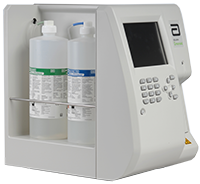Also known as: CBC; Hemogram; CBC with Differential
Formal name: Complete Blood Count
Related tests: Blood Smear; Hemoglobin; Hematocrit; Red Blood Cell (RBC) Count; White Blood Cell (WBC) Count; White Blood Cell Differential Count; Platelet Count , Reticulocyte Count
The complete blood count (CBC with Differential) offered at Alcala Pharmaceuticals is a broad screening test to determine an individual’s general health status. It can be used to:
- Screen for a wide range of conditions and diseases
- Help diagnose various conditions, such as anemia, infection, inflammation, bleeding disorder or leukemia, to name just a few
- Monitor the condition and/or effectiveness of treatment after a diagnosis is established
- Monitor treatment that is known to affect blood cells, such as chemotherapy or radiation therapy
CBC is a panel of tests that evaluates the three types of cells that circulate in the blood and includes the following:
- Evaluation of white blood cells, the cells that are part of the body’s defense system against infections and cancer and also play a role in allergies and inflammation:
- White blood cell count (WBC) is a count of the total number of white blood cells in a person’s sample of blood.
- White blood cell differential may or may not be included as part of the panel of tests. It identifies and counts the number of the various types of white blood cells present. The five types include lymphocytes (LYM), neutrophils, monocytes, eosinophils, and basophils (GRA). MID cells and percentage: (MID) cells include less frequently occurring and rare cells correlating to monocytes, eosinophils, basophils, blasts and other precursor white cells that fall in a particular size range. The percentage and absolute counts are determined for lymphocytes, neutrophil, and mid-size population of monocytes, basophils, eosinophils, blasts, and other immature cells.
- Evaluation of red blood cells, the cells that transport oxygen throughout the body:
- Red blood cell count (RBC) is a count of the actual number of red blood cells in a person’s sample of blood.
- Hemoglobin (HGB) measures the amount of the oxygen-carrying protein in the blood.
- Hematocrit (HCT) measures the percentage of a person’s blood that consists of red blood cells.
- Red blood cell indices are calculations that provide information on the physical characteristics of the RBCs:
- Mean corpuscular or cell volume (MCV) is a measurement of the average size of RBCs.
- Mean corpuscular or cell hemoglobin (MCH) is a calculation of the average amount of oxygen-carrying hemoglobin inside a red blood cell.
- Mean corpuscular or cell hemoglobin concentration (MCHC) is a calculation of the average percentage of hemoglobin inside a red cell.
- Red cell distribution width (RDW) is a calculation of the variation in the size of RBCs.
- The CBC may also include a reticulocyte count, which is a measurement of the absolute count or percentage of young red blood cells in blood.
- Evaluation of platelets, cell fragments that are vital for normal blood clotting:
- The platelet count (PLT) is the number of platelets in a person’s sample of blood.
- Mean platelet volume (MPV) is a calculation of the average size of platelets.

